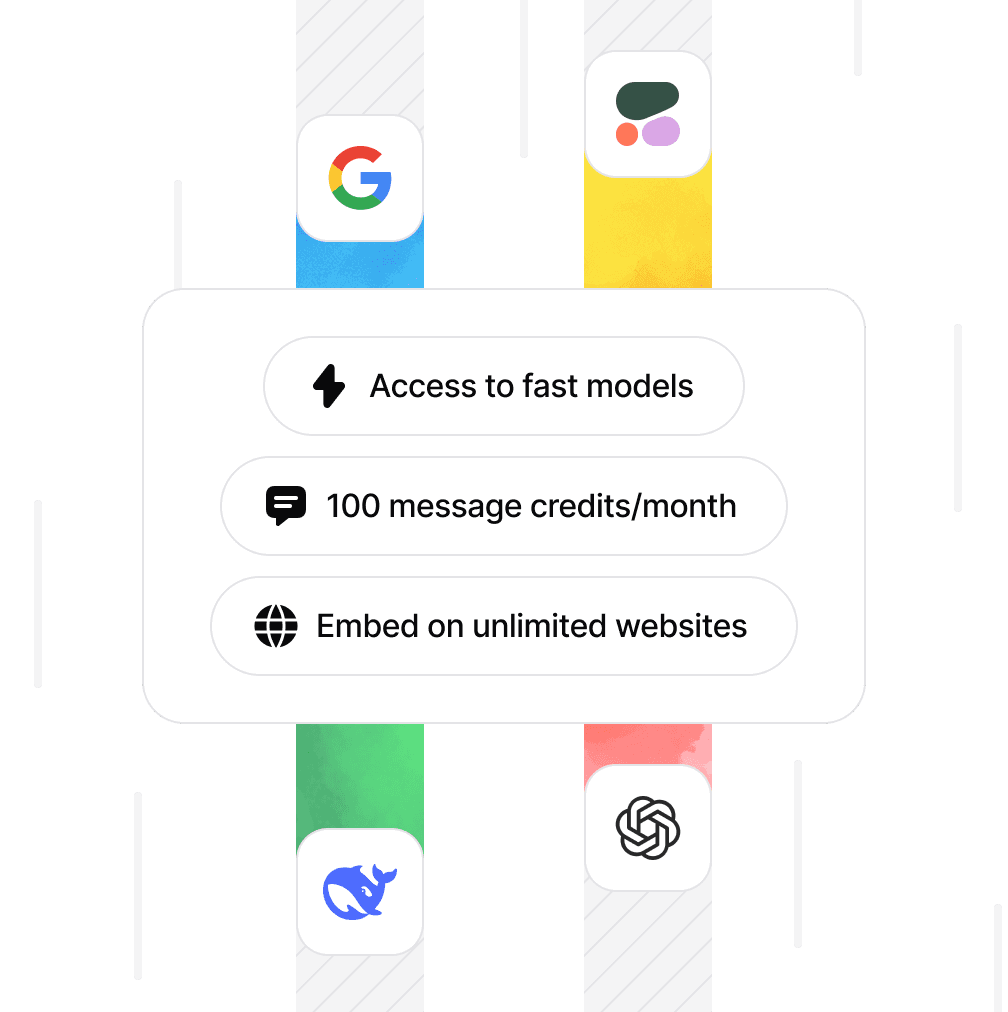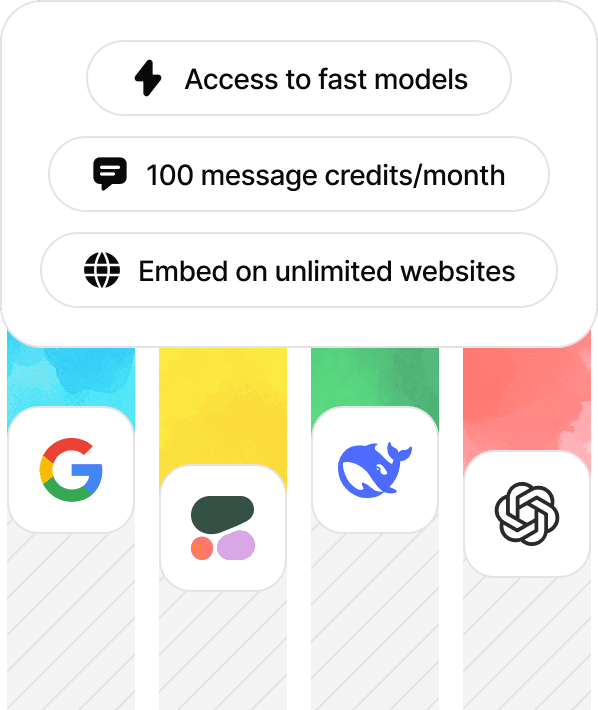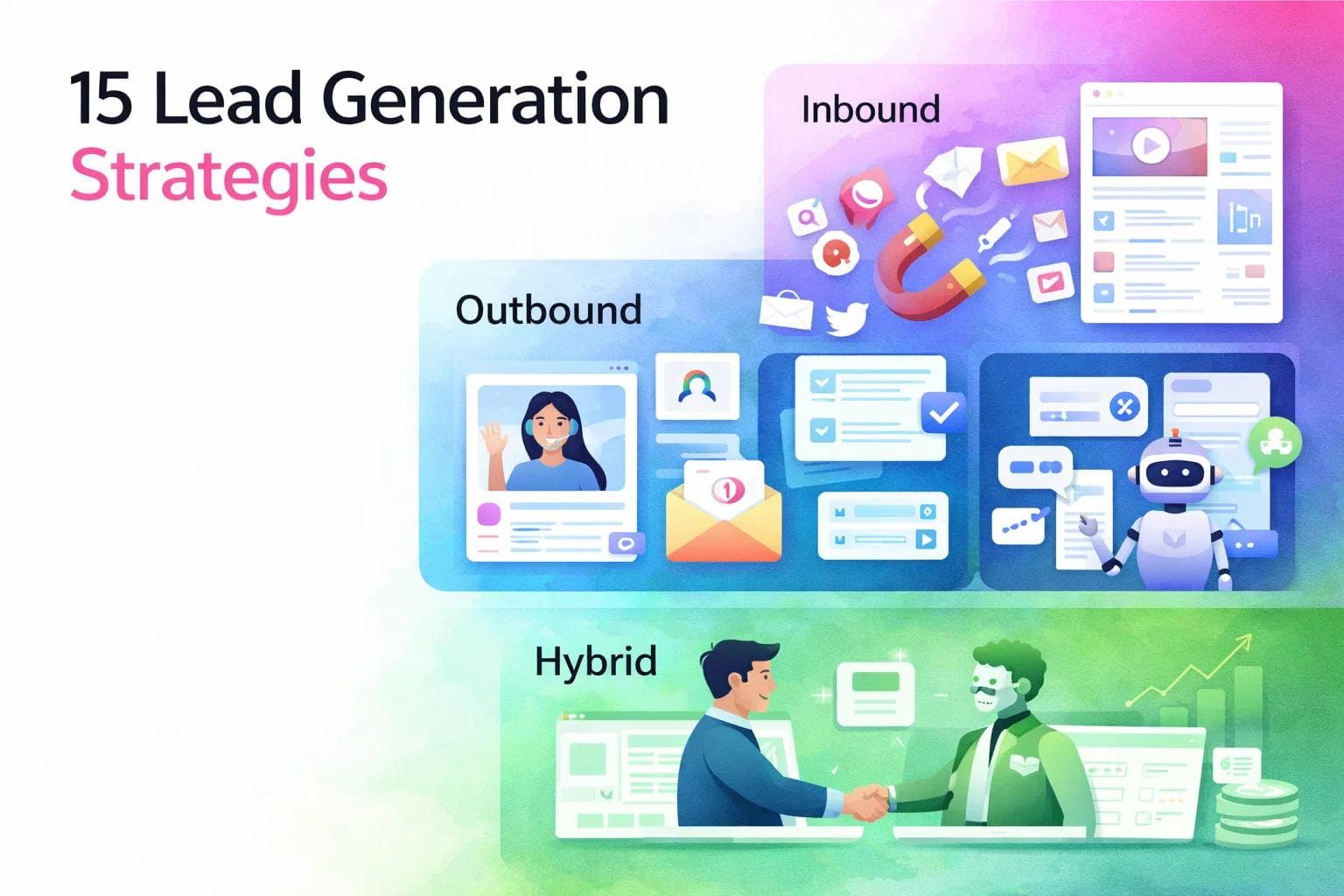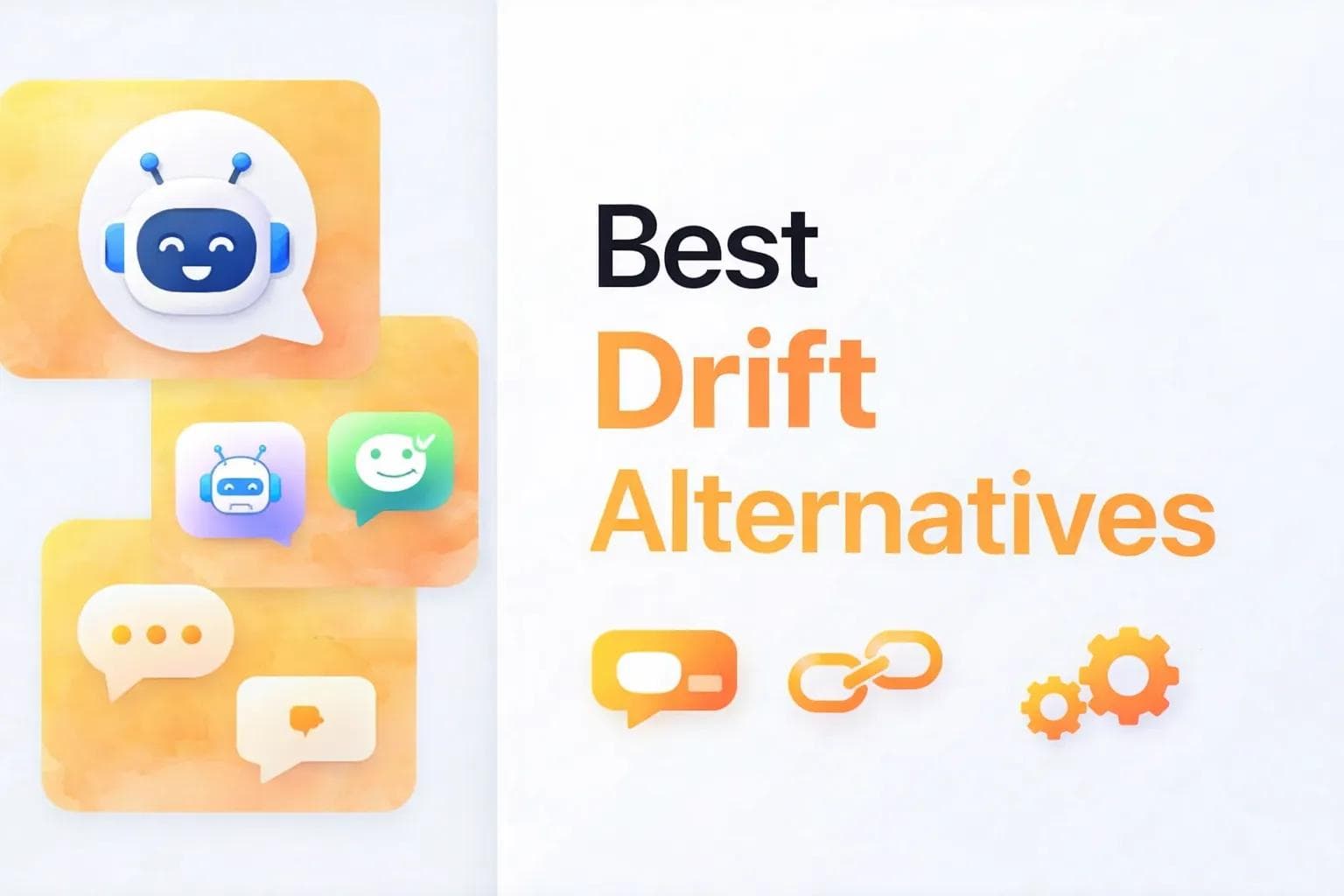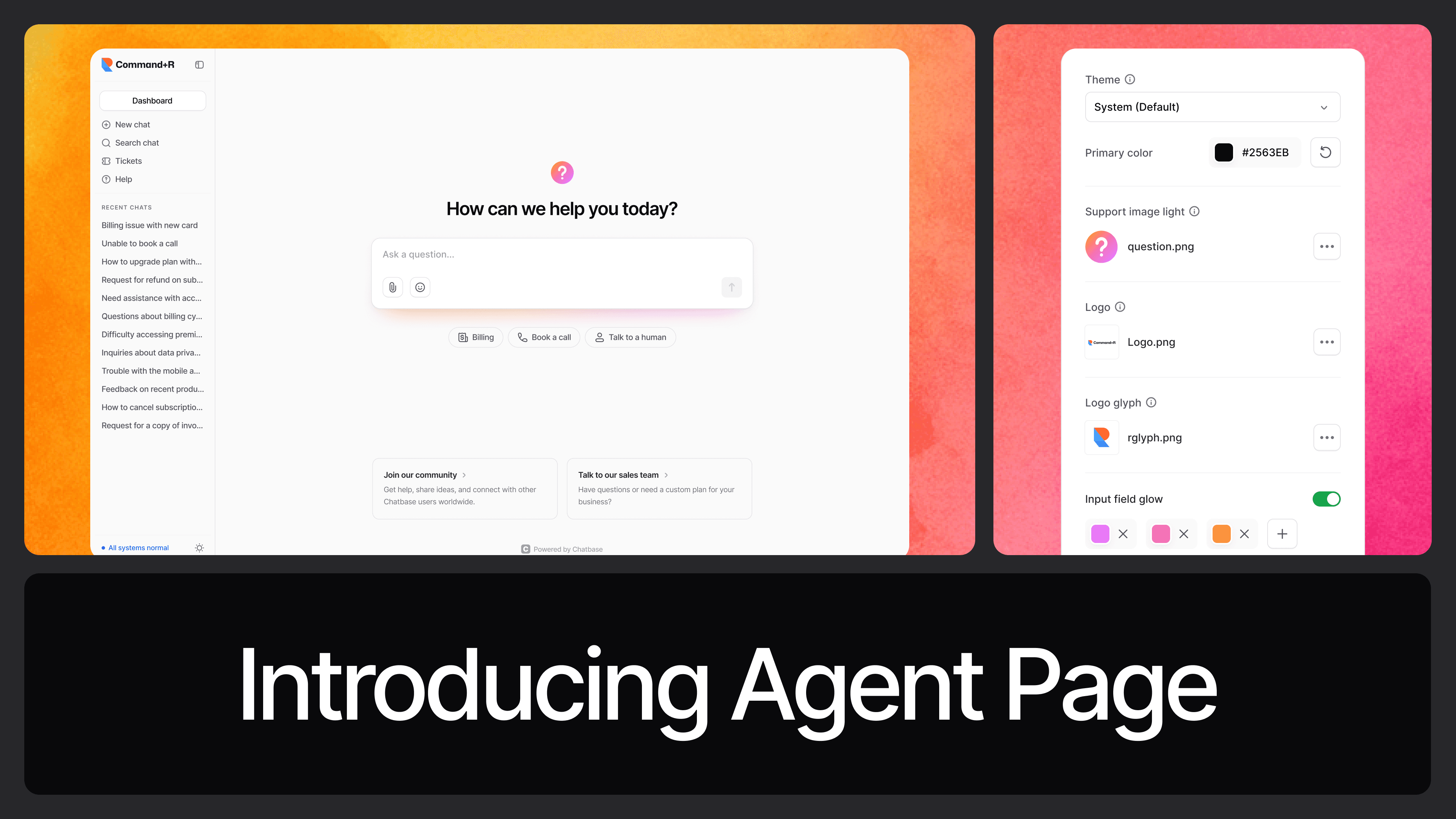Creating Personalized Customer Interactions with AI Chatbot Customer Service
Max T
May 21, 2024
10 min read
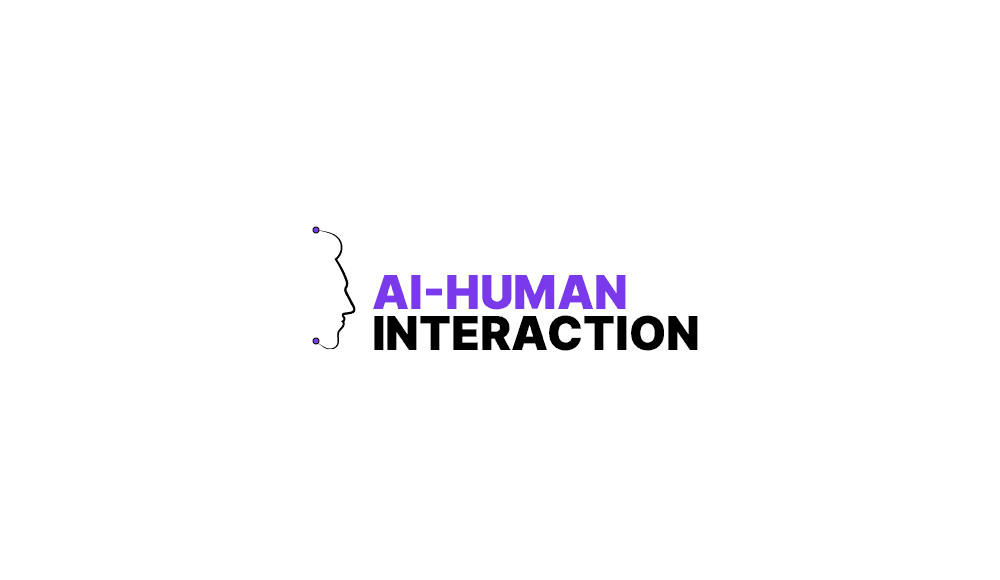
Let's paint you a mental picture. You've come across an issue while using a service or making a purchase from your favorite vendor brand, and you need to make a complaint. Chatbots exist to fill in, and handle inquiries where live agents and FAQ sections just aren't sufficient enough to handle inquiries and concerns.
On the flip side, as a business, your customers need to feel that their needs are one of your main priorities. In fact, the best way to keep a customer is to make them feel seen, heard and satisfied. In this quickly evolving digital age, one of the most effective ways to do that is by personalizing customer interactions with an AI chatbot.
AI chatbots leverage advanced technologies to create highly personalized experiences that strengthen customer satisfaction and loyalty. This completely transforms the way businesses interact with customers.
By personalizing experiences, companies can significantly increase their customer base, build loyalty, and set themselves apart in a competitive market.
By the end of this article, you'll have a pretty good understanding of how AI chatbots can, and are being leveraged, to create more meaningful and effective customer service experiences.
Let's dive in!
What Are AI Chatbots?
![[object Object]](/_next/image?url=https%3A%2F%2Fcdn.sanity.io%2Fimages%2Fi6kpkyc7%2Fprod-dataset%2F6032e68c971b112f8e621079252bfd8684764370-1280x811.jpg&w=3840&q=75)
AI chatbots are software applications that use artificial intelligence to conduct conversations with users. These chatbots can simulate human-like interactions, and provide responses based on predefined rules, machine learning algorithms, or natural language processing (NLP).
The evolution of AI chatbots has been rapid, from simple rule-based systems to sophisticated AI-driven platforms capable of understanding and responding to complex queries.
Chatbots have found their way into nearly every sphere of human use, and can be found in multiple industries, from banking and finance to e-commerce.
They're useful in a wide range of customer service tasks such as; answering account-related questions, assisting with transactions and bill payments, answering product-related questions, providing personalized product recommendations, assisting with order tracking and returns, handling FAQs and customer inquiries, and providing technical support and troubleshooting. The list is endless.
Why is Personalization so important in Customer Service?
![[object Object]](/_next/image?url=https%3A%2F%2Fcdn.sanity.io%2Fimages%2Fi6kpkyc7%2Fprod-dataset%2F10defbcf8be1e2e92fea6b48e892663180be6aaa-1600x800.png&w=3840&q=75)
In the digital age, customers have gotten used to personalized experiences from online retailers, streaming services, and social media platforms. This shift has understandably raised their expectations for personalized interactions across all types of services.
They expect brands to remember their preferences, purchase history, and previous interactions, and to use this information to tailor an experience that is not only beneficial to them, but also makes their lives much easier.
When customers receive personalized service, they feel recognized and valued. This emotional connection can significantly enhance their satisfaction with the service. Little details like addressing a customer by name, acknowledging their history with the company, and offering solutions based on their specific needs can lead to higher satisfaction levels.
Personalization also helps to build trust and loyalty. When customers feel understood and appreciated, they're more likely to return and continue doing business with the company. And how can you track this? With robust loyalty management software.
Ultimately, it helps brands and businesses establish themselves as having a customer-centric image. Companies that offer personalized experiences are usually perceived as being more customer-centric and innovative than others.
This positive image can attract new customers and enhance overall market reputation. Some great examples are brands like Amazon and Netflix. They're known for their personalized experiences, which contribute to their strong positions in the market, and customer loyalty.
How Do AI Chatbots Enable Personalization?
AI chatbots take advantage of new and emerging technologies and techniques to bring consumers closer to businesses.
For example, AI chatbots collect data from various customer touch-points, such as interactions on websites, mobile apps, and social media platforms. This data includes information about their purchase history, browsing habits, preferences, and any interactions they might have had with the company in the past.
The collected data is then analyzed to gain insights into customer behavior and preferences. This analysis helps in understanding what customers like, their purchasing patterns, and common issues they face. This way, they're able to create detailed customer profiles, and offer more personalized responses.
Another way AI chatbots connect with consumers is through Natural Language Processing. NLP allows chatbots to understand and interpret human language, especially all the context that goes into customer queries. It also helps chatbots keep up a conversational tone, making interactions feel more natural. By using NLP, chatbots are able to adjust their tones, recognize nuanced speech, and give more empathetic responses.
Chatbots also make use of personalized recommendations. Asides their main function of answering inquiries and giving feedback, chatbots can also give helpful suggestions that are tailored to particular customers. These suggestions are tailored to the customer’s preferences and past behavior, increasing the likelihood of conversion.
Additionally, chatbots are equipped to integrate with Customer Relationship Management systems and other customer service platforms.
To what end?
Well, this integration ensures that chatbots have access to comprehensive customer data, and can provide personalized support. It also allows chatbots to offer a consistent customer experience across a range of platforms like chat or email.
Benefits and Challenges of Using AI Chatbots to Personalize Customer Service
Benefits
1. Enhanced Customer Experience
AI chatbots can provide instant, personalized responses, making interactions smoother and more satisfying. By remembering previous interactions and customer preferences, chatbots can offer relevant solutions and recommendations, thereby improving the overall customer experience.
2. Increased availability
AI chatbots operate 24/7, providing consistent and prompt service without the limitations of human working hours. This ensures that customers can get assistance at any time, enhancing accessibility and convenience.
3. Saves costs
Implementing AI chatbots can significantly reduce operational costs by handling routine inquiries and tasks that would otherwise require human agents. This allows companies to allocate human resources to more complex tasks.
4. Predictive customer engagement
AI chatbots can anticipate customer needs based on data and interaction patterns. They can offer proactive support, such as reminding customers of upcoming subscription renewals or suggesting products that they might be interested in, which are great ways to enhance engagement and satisfaction.
Challenges
1. Limited Understanding of Complex Queries
Even though AI is advancing at an impressive speed, chatbots can still struggle with understanding and resolving particularly complex or nuanced queries. This limitation can lead to customer frustration if the chatbot can't provide satisfactory answers or solutions.
2. Frequent maintenance is required
AI chatbots require regular maintenance and updates to remain effective and relevant. This means continuous monitoring, bug fixing, and training on new data are necessary to keep the chatbot’s performance satisfactory, which can be resource-intensive.
3. Privacy concerns
Handling sensitive customer data comes with significant privacy and security responsibilities. That's why it's so crucial to ensure that chatbots comply with data protection regulations and take measures to safeguard consumers against cyber threats.
4. Risk of impersonal interactions
Yes, chatbots aim to personalize interactions, but there's still a chance that customers may perceive the service as impersonal compared to human interactions. That's why balancing automation with a human touch is essential to avoid alienating customers.
One of the ways businesses can overcome these challenges and maximize the benefits of AI chatbots is by making use of advanced chatbot platforms like Chatbase. Chatbase provides detailed insights into chatbot performance, which helps businesses understand user behavior, identify improvement areas, and optimize their chatbot interactions for better personalization.
Notwithstanding these existing challenges, several companies are taking advantage of these benefits, and have embraced AI chatbots as a way to enhance their customer service experience by delivering personalized interactions.
The Future of AI Chatbots in Personalized Customer Service
The future of AI chatbots in customer service looks very promising, and there are several emerging technologies set to take their capabilities to the next level.
These include innovations in AI and machine learning, such as deep learning that will make chatbots even more intelligent, and capable of handling complex interactions. Advances in NLP will also enable chatbots to understand and respond to human emotions, making them sound more empathetic.
The adoption of AI chatbots is expected to grow across various industries, and we're bound to see future trends like greater integration with voice assistants, more sophisticated predictive analytics, and the use of chatbots for proactive customer engagement.
At the end of the day, it's clear that AI chatbots, and artificial intelligence as a whole, are here to stay. And by investing in AI chatbot technology, businesses can significantly enhance their customer service capabilities, improve satisfaction, and build stronger customer relationships. You're encouraged to explore the possibilities that AI chatbots offer, from improving response times and efficiency to creating more meaningful and personalized customer experiences.
But before doing that, you should start by assessing your current customer service processes, identifying areas for improvement, and considering how AI chatbots can be integrated to provide exceptional, tailored service.
Don't wait—take the first step toward building a great customer service strategy with AI chatbots today. Sign up for free on Chatbase to create personalized customer interactions using AI chatbots.
Share this article:
